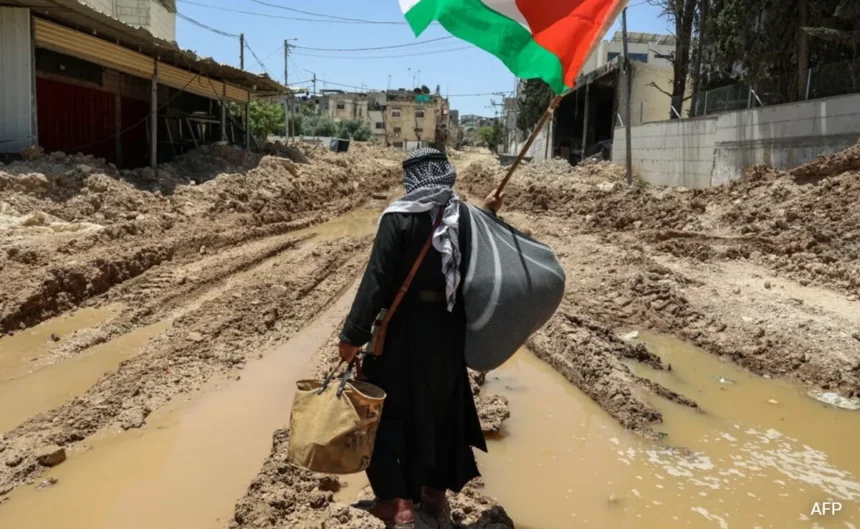Introduction
As the Israel-Gaza conflict intensifies in 2025, Israel’s key allies—the United Kingdom, France, and Canada—have issued a stern warning against Israel’s ongoing offensive in Gaza. The three countries have condemned Israel’s actions and blockade of humanitarian aid, threatening concrete responses if the military campaign persists. Israeli Prime Minister Benjamin Netanyahu strongly rejected these threats, calling the joint statement a “huge prize” for Hamas amid the escalating war.
International Allies Demand a Halt to Israel’s Offensive
In a joint statement, British Prime Minister Keir Starmer, French President Emmanuel Macron, and Canadian Prime Minister Mark Carney criticized Israel’s expansion of military operations and called conditions in Gaza “intolerable.” They warned that if Israel does not cease its offensive and lift restrictions on humanitarian aid, they will take further concrete actions in response.
The statement did not specify the nature of potential actions but reaffirmed the commitment of the three nations to recognize a Palestinian state as part of achieving a two-state solution. This aligns with broader international calls for peace and respect for humanitarian law in the region.
The Humanitarian Crisis in Gaza
Gaza’s health ministry reports over 3,340 deaths since Israel resumed strikes on March 18, with the overall death toll from the conflict reaching more than 53,000. The blockade imposed by Israel since early March has severely restricted access to food, medicine, and other essential aid, raising international concerns about potential breaches of humanitarian law.
Furthermore, a coalition of 22 countries, including the UK, France, and Canada, has demanded an immediate resumption of aid into Gaza, warning of a looming starvation crisis. The leaders condemned forced displacement threats as breaches of international humanitarian law.
Netanyahu’s Firm Response
Israeli Prime Minister Benjamin Netanyahu dismissed the joint statement from Western allies, accusing them of rewarding Hamas for its attacks. Netanyahu framed the conflict as a “war of civilisation over barbarism” and vowed to achieve “total victory” by retaking full control of Gaza.
He emphasized that Israel’s war efforts will continue until Hamas is defeated, hostages are released, and Gaza is demilitarized. Netanyahu urged other European leaders to follow former US President Donald Trump’s example in supporting Israel unconditionally during this conflict.
Looking Ahead: The Path to Peace
The situation remains highly volatile, with no immediate end in sight. The international community’s pressure on Israel to halt its offensive and lift the blockade highlights the urgent need for a humanitarian resolution. However, Netanyahu’s steadfast stance underscores the challenges in achieving peace.
For readers interested in a deeper understanding of this conflict, check out our comprehensive history of the Israel-Palestine conflict.
Conclusion
The escalating conflict in Gaza continues to draw sharp reactions from global powers. The UK, France, and Canada’s threats of action mark a significant moment in international diplomacy, emphasizing the humanitarian toll and legal concerns. Meanwhile, Israel’s commitment to military victory signals ongoing tension and uncertainty.
Stay informed with our latest updates on the Israel-Gaza conflict and international responses. What do you think will be the outcome of this crisis? Share your views in the comments below.


